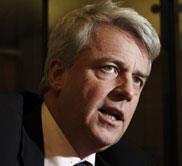The health bill published today maintains a light touch approach to requirements for commissioning consortia, but appears to leave wriggle room for more prescription in future.
Consortia must be made up of two or more GP providers but no other minimum size is specified. The bill defines little about their governance or accountability arrangements.
If consortia wish they can pass their functions to committees which can include “persons other than members or employees of the commissioning consortium” – for example lay members or non-GP clinicians. However, this is not a requirement.
The duties consortia will have are only broadly defined. They include a duty of “effectiveness, efficiency etc.”; to “exercise its functions effectively, efficiently and economically”; to improve the quality of services; and to reduce inequalities.
Consortia will have to submit a constitution but there are few requirements about what must be in it, although it must include “provision for dealing with conflicts of interests of members or employees of the commissioning consortium”.
When practices apply to become consortia they must say which “area” they want to cover but it remains unclear whether all practice members will be required to be adjacent.
Although it defines few requirements for consortia, the bill appears to leave the door open for further regulations to set more rigorous details and an authorisation process.
It says future regulations may include any “factors which the [NHS commissioning] board must or may take into account” when it comes to authorise the creation of consortia, and how it will run the authorisation process.
Notes published by the Department of Health alongside the bill today say: “The intention is that consortia will generally have flexibility within the legislative framework to determine how they carry out their functions.
“There will, however, be a need to make further more detailed provision in secondary legislation regarding certain matters. These would include the circumstances where consortia have responsibility for commissioning services for persons other than those registered with the GP practices in the consortium, the constitution of consortia, and the process for establishment of consortia.
“Regulations would also set out matters such as the procedure that the board must follow before it can exerciser its power to intervene in the event of failure or the risk of failure.”
Emma Teale, lawyer at Beachcroft, said despite the lack of defined governance consortia would be considered public bodies and would be subject to the Freedom of Information Act, for example.
The bill appears to leave open the question of who will be responsible for health services for people in their area who are not registered with a GP practice. Consortia will be responsible for people who are registered with a member practice - although this can also be withdrawn “in prescribed circumstances”. Any responsibility for other people “who have a prescribed connection with the consortium’s area” would have to be ascribed to consortia in further regulations.
Coverage of people not registered with practices - who are more likely to include homeless, travellers and other vulnerable groups - is a major question in relation to health inequality.
'Evolutionary' Health and Social Care Bill launched

Legislation to scrap primary care trusts and strategic health authorities, create commissioning consortia and give providers greater autonomy has been laid before parliament.
- 1
- 2
- 3
- 4
- 5
- 6
- 7
- 8
- 9
- 10
- 11
- 12
 Currently
reading
Currently
reading
Health Bill maintains light touch on consortia
- 14
- 15
- 16
- 17
- 18
- 19































































4 Readers' comments